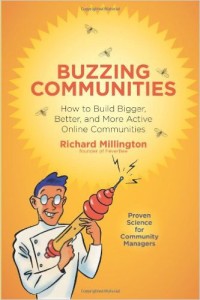How To Become A Video Game Community Manager

It’s All About Community
The game industry is evolving. As video games have changed over time from solitary experiences into live, “always on” worlds with millions of players, engaged communities of players have grown around them.
And game studios have responded by creating new teams of specialists to manage and nurture all those players – both inside and outside of the games themselves. These specialists are called Community Managers.
Jason Van Beveren is a professional Video Game Community Manager. He combines his love of the video game industry, with years of experience to help game companies turn even the most casual fans into empowered, enthusiastic brand evangelists. We talk with him today about what a Community Manager does, what it takes to succeed in that job, and how you can get started.
What does a Video Game Community Manager do each day?
As the Head of Player Experience at DropForge Games, I oversee the Player Support team (what most companies refer to as Customer Service) as well as the Community Managers. I help define the voice of our brands, and make sure the tools are in place for my team to support our players and give them healthy, positive experiences.
What are the highs and lows of game community management?
Every day, I get to talk with people who are just as passionate as I am about video games – oftentimes, more so! They hail from every corner of the planet, and you get to learn a lot about the way people think and feel. I’ve had conversations with moms, college professors, high school seniors, taxi drivers, celebrities, all of them sharing in one common interest. And it’s an interest they’re equally enthusiastic about. How cool is that?
On the flip side, there are the days when you’re the bearer of bad news. Game services can break, release dates can shift, content plans get adjusted… and you have to be honest with players when these things happen. You deal with a lot of angry people in those situations – and in extreme circumstances, people turn to personal attacks or worse. You learn to deal with those situations as gracefully as you can, with as much empathy as possible. Then you go home and have a drink.
What aspects of Community Management might people find surprising?
Whenever we have visitors from outside the gaming industry, people are usually surprised that my computer monitors aren’t just sitting on Facebook and Twitter all day. Social media interactions are definitely important, but there’s a lot more that goes into being a successful Community Manager.
The larger the game, the more organization you need in your work. Before they ever make their first post, a Community Manager needs to look at the overall release plan for their game and build a content calendar (usually spanning weeks ahead, if not months), spec out their key posts, build the necessary social media channels in order to build a community for their game, collect marketing assets, and so on.
Once that’s done, and you start engaging with your players, you need to take data back to the game team so they know what’s happening. That means sifting through feedback comments, social media insights and analytics, and building reports for the game developers and your leadership team.
What does it take to succeed as a Community Manager?
As you can tell from the last question, there’s a lot of organization needed to be a successful Community Manager.
Personality wise, most of the Community Managers that I know have three traits in common:
- They’re kind, generous and helpful by their nature.
- They have thick skin, and don’t let personal attacks affect their work.
- They love talking with people about the things they’re passionate about.
Even in their interactions in the studio, the best CMs are usually group-minded and thinking about others first.
What advice would you give to someone thinking about a career in community management?
Community Managers are part storyteller, part relationship manager, and part analyst. Creative writing experience will help you when you’re trying to find fun ways to talk about something, without sounding like you’re repeating your last post. Above all, communication skills are key.
In addition, a lot of the Community Managers I know have experience in Marketing. Even if it’s just a few months at an intern level, it helps to understand how you create fun, engaging content while still driving people to take action.
What resources would you recommend to people just starting out?

Get involved with community building now. Even if it’s just a clan, a website, or a forum – start now and get some experience.
To help get a better understanding of how community management works, and some of the best practices for growing a community, read Buzzing Communities by Richard Millington. It’s a fantastic book on community building and gives you some great exposure to what works, and what doesn’t work, when you’re working with a community.
You can connect with Jason Van Beveren via his LinkedIn profile. If you know someone who would be interested in this career, send this article using the Share buttons below.
Read my new book!
Making games for a living is an incredibly rewarding career, but it’s hard to break in unless you have insider knowledge. This book levels the playing field.


Jason,
This is a fascinating article. As a recent graduate with a Master of Science in communication studies, I have been looking for ways to branch my skills into the video game industry. As a hobby, I have formed a community of over 300 players in the mobile game Star Wars Galaxy of Heroes. If you have any other advice regarding branching into the video game industry from a communication perspective I would love to chat with you.
Alexander, with your masters in comm and your SWG community experience, I think you could apply for community manager jobs at game studios/publishers right now. You may need to make a new resume that focuses more on your video game and community experience, but I think you’d have a shot.
What tools for social media do you use to collect data?
Hi Ronald, the popular tools change yearly as new ones become available. Some companies build custom in-house analytics tools, but many just use the tools provided by the platforms (Twitter, Facebook, etc.) because they’re integrated with the platform and are upgraded frequently.
Do you have to make a special page on those platforms or can it be used from any type of page?
I would like to get started in this job but not too sure where I need to start in my studies(in from Canada).
Hi Marc-Antoine, that’s a great question. I checked the LinkedIn profile for several community managers, and I couldn’t find a common thread, education backgrounds seem to vary: Communications, Anthropology, Broadcasting, Game Production, Psychology. I think this is a career that people get into by doing it in their spare time, for example as an admin or moderator for online gaming forums or discussion boards. If you’re interested in Communications, or Marketing, I think those would be good areas of study for this job.
Informative article. I have been involved with gaming communities for over a 10 years and it is a passion that I haven’t been able to grow out of. I have made a professional career in the technical field and I have been inquiring how to make the transition into the community manager position. Any tips in regards to creating a video game and community focused resume?
Thank you in advance.
Hi Socorro, why would you want to grow out of video games? Video games are awesome. 🙂 I don’t have specific tips for your resume, but a general approach is to 1) search for job postings, 2) observe the skills and experience they require, then 3) tailor your resume to focus on things you’ve done that address their requirements. This article on video game resumes might also be helpful.